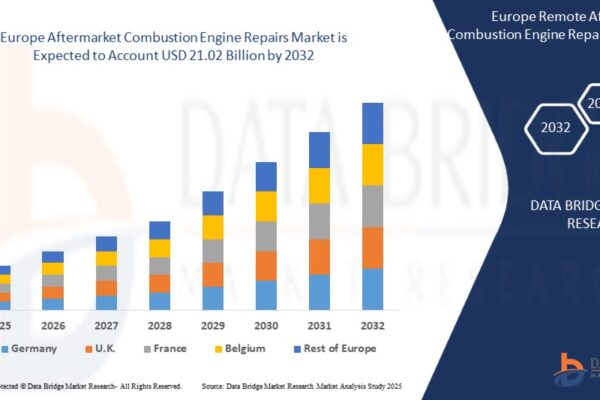Running a hotel in Singapore involves more than smooth check-ins and comfortable beds. Guest safety, data protection, and staff movement all depend on well-managed systems. A reliable access control system Singapore hotels adopt helps manage these factors with precision and ease.
Choosing the right setup means understanding how your hotel operates, who enters your building, and what kind of experience you want to offer. This guide explores key considerations when selecting a security system that keeps both guests and assets safe.
Understanding Hotel Access Control
Access control defines how people enter, move through, and exit a building. In a hotel, this includes guest rooms, staff areas, meeting rooms, and even lifts. A smart system ensures the right person accesses the right place at the right time.
Modern hotels use digital keys, mobile apps, card systems, and secure entry points. A good door access system Singapore properties use prevents unauthorised access while allowing smooth entry for guests and staff.
Key Benefits of a Good Access Control Setup
- Security: Protects guest belongings, staff-only zones, and data centres.
- Flexibility: Adapts to different roles, such as guests, cleaners, or maintenance staff.
- Tracking: Log entry times to manage traffic or resolve disputes.
- Customisation: Allows restricted access during set hours or for certain users.
Strong access control is no longer an add-on. It forms the core of modern hotel operations, especially in high-traffic or multi-floor buildings.
1. Assess the Property Layout
Start by mapping out your building. Think about where people enter, gather, and pass through.
Consider:
- Number of rooms and floors
- Guest-only vs staff-only zones
- Shared amenities like gyms or pools
- Multiple entrances or back-of-house corridors
If your layout includes split buildings or private lifts, your access control system hotel Singapore setup must allow cross-control without confusion. It should separate guests from staff when needed and offer easy tracking of who moves where.
2. Choose the Right Access Method
There are several types of systems available. Each offers different levels of control, ease of use, and maintenance needs.
Common Types:
- RFID Cards: Swipe or tap cards for entry. Easy to replace.
- PIN Pads: Require a numeric code. Good for staff zones.
- Biometric Systems: Use fingerprints or facial recognition. Offers high security.
- Mobile Access: Lets guests use smartphones to unlock rooms or gates.
- Smart Locks: Often linked with booking systems for seamless check-in.
In Singapore’s tech-savvy environment, guests often expect digital or mobile entry. However, always back this up with manual access in case of device failure or network issues.
3. Plan for Scalability and Integration
Your hotel might start small, but you may add rooms, facilities, or smart features later. Choose a system that allows future upgrades. For example, a base unit might support 50 rooms today but expand to 100 without a full replacement.
Also, think about software compatibility. Can your access system link with your booking platform, housekeeping schedules, or building sensors? If so, it allows for central control and real-time updates.
4. Control Staff and Vendor Access
Guests aren’t the only people who move through your hotel. Cleaners, kitchen staff, engineers, and external vendors all require entry at different times and zones.
Use role-based access to restrict each group to specific hours and spaces. This keeps equipment, stock, and guest rooms secure. You also reduce unnecessary traffic and improve accountability.
In hotels that host events, temporary access can be given to external vendors for a limited period. The door access system Singapore hotels use must handle this without needing physical keys or resets.
5. Think About Guest Experience
Security matters, but so does comfort. A system that’s too complex frustrates guests. It should feel intuitive from the moment they check-in.
Consider:
- Clear instructions for digital keys
- Card readers with good visibility and fast response
- Access methods that support guests with special needs
Mobile apps that let guests unlock their doors, call lifts, or access meeting rooms improve convenience. However, always offer support for guests who prefer or need traditional key cards.
6. Understand Maintenance and Support Needs
Even the best systems need upkeep. Choose one that offers simple updates and low servicing needs.
Ask these questions:
- How are updates managed?
- What happens during a power failure?
- Are support services available in Singapore?
Choose a system with parts that are easy to replace or upgrade. You don’t want to wait days for minor repairs.
Feature Comparison Table
Here’s a quick breakdown of popular access options and how they compare. Use this as a guide when deciding what fits your space and guest expectations.
|
Access Method |
Ease of Use |
Guest Suitability |
Security Level |
Maintenance Needs |
|
RFID Card |
High |
Very Suitable |
Medium |
Low |
|
PIN Code |
Moderate |
Less Preferred |
Medium-High |
Low |
|
Mobile Access |
High |
High |
High |
Moderate |
|
Biometric Scan |
Moderate |
Less Suitable |
Very High |
High |
|
Smart Lock |
High |
High |
Medium-High |
Moderate |
7. Evaluate Data and Privacy Compliance
Access control systems log user data. This includes entry times, identity, and room access. You must store and manage this data properly.
In Singapore, data protection laws apply. Choose a system that encrypts data and follows security standards. Guest trust depends on how you handle their personal access rights.
Train staff to manage and view this data responsibly. Also, ensure old records are cleared or archived securely when no longer needed.
8. Work Within Building Constraints
Some buildings, especially heritage hotels have layout restrictions. In these cases, choose a non-invasive system that doesn’t require major changes to walls or doors.
Wireless locks or mobile entry systems suit older buildings. They minimise changes while still upgrading control.
Always conduct a site audit before choosing a system. Review materials, wiring, and potential signal issues.
9. Plan for Emergencies
Emergency access is vital. If a fire alarm sounds, your system must allow safe evacuation. Staff should override locks during drills or urgent situations.
Ensure the system supports:
- Fire safety integration
- Power backup or battery locks
- Manual override by trained staff
A good access control system Singapore buildings use includes these functions. Test them regularly and train staff across all shifts.
10. Review Supplier Track Record
While this guide avoids naming suppliers, it’s essential to choose a trusted partner. Look for proven experience in Singapore’s hospitality sector. Check if they provide local support, easy upgrades, and training tools.
Request case studies from similar properties. This helps you judge how well the system works in practice.
Your access control system hotel Singapore operators use must serve daily needs without friction. Choosing a reliable provider is part of that success.
Final Thoughts
Selecting the best access control system Singapore hotels can rely on requires clear planning, team input, and a focus on long-term use. Your decision should balance guest comfort, staff needs, and operational control.
From smart locks to mobile access and zone controls, the right system improves safety and simplifies work for your team. It supports a smooth guest experience while protecting the business.
Plan, match the system to your space and let your access control work quietly but effectively behind every door.





Leave a Reply
You must be logged in to post a comment.